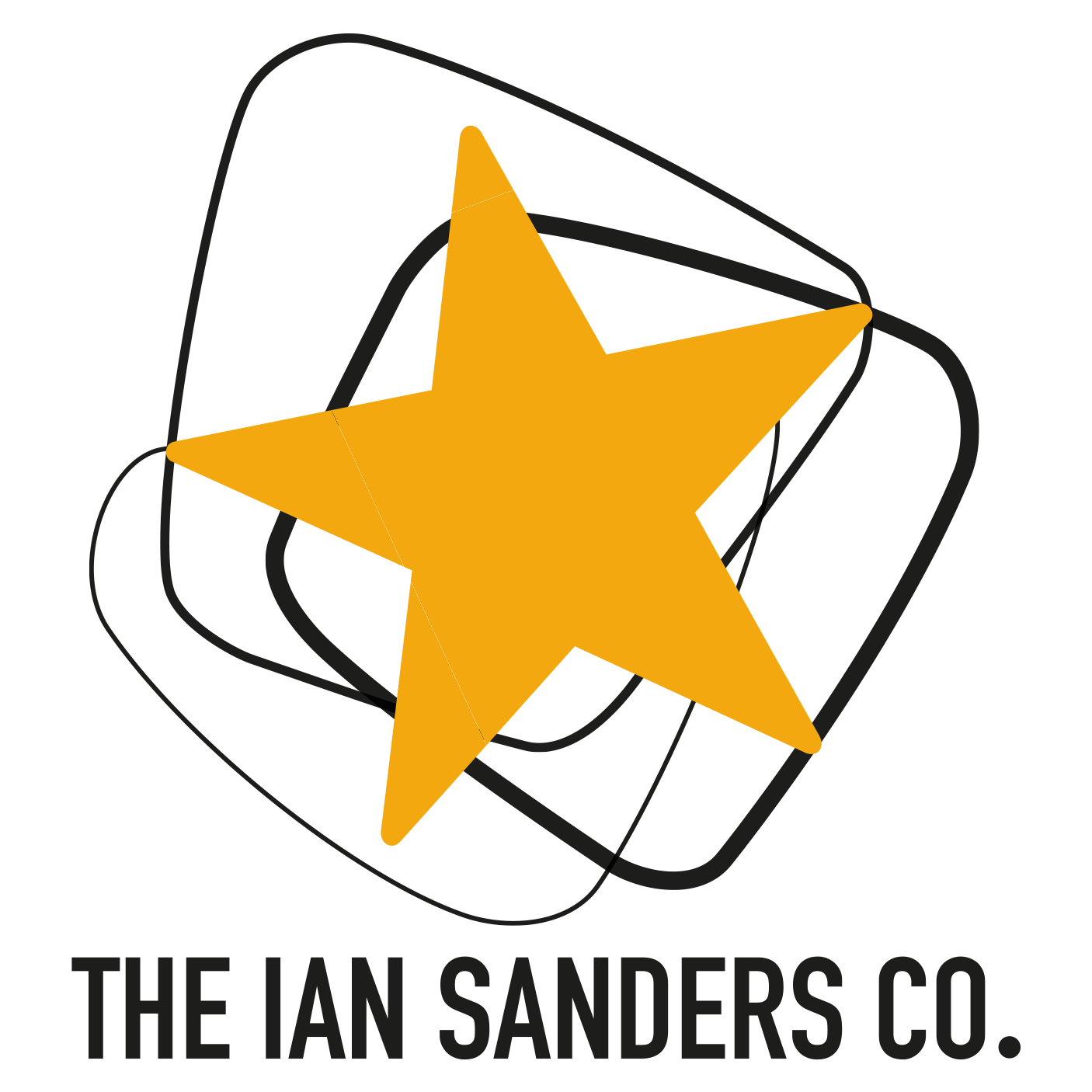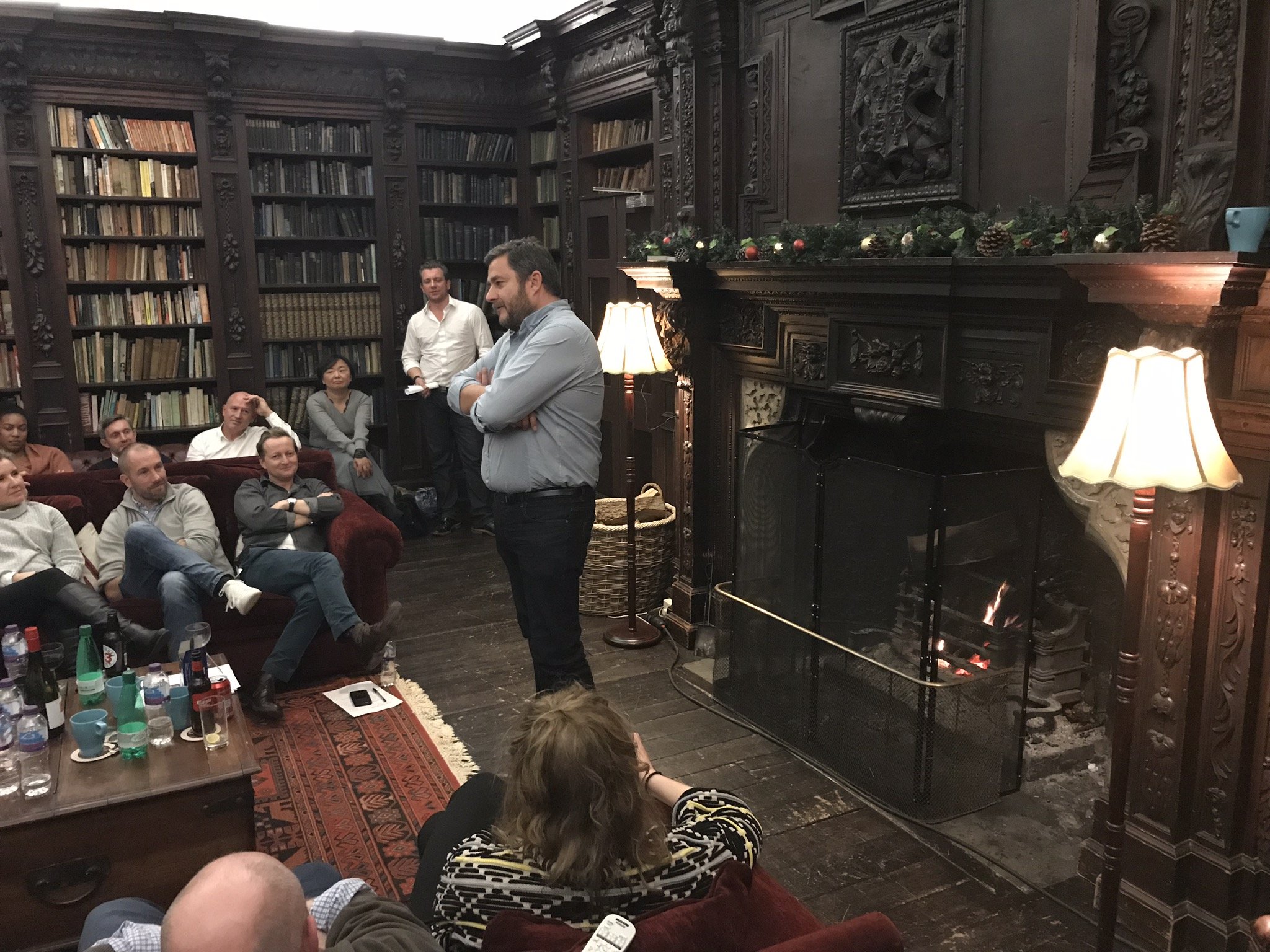Stories around the fireside: how personal tales of triumph and trials create a company’s glue.
Stories are valuable to businesses and organisations. Our brains are hard-wired for stories. Stories are the most useful communication commodity we have at our disposal. So how can organisations use the power of storytelling to get people working better together?
Coming together
Picture the scene. On a drizzly Monday morning in late November, a stream of cars and taxis is heading up the long driveway to Oxon Hoath, a historic manor house set in 73 acres of the Kent countryside.
600 years old, Oxon Hoath is a house steeped in history. Today it’s playing a vital role in the story of Thomas Cook Money, a startup which formally launched just days earlier. Thomas Cook Money, whilst a new company, has its own roots in a brand that has been around 175 years, the Thomas Cook travel group.
The purpose of the awayday is to help the team communicate better, to define their role within the wider Thomas Cook Money story and get them working towards a shared vision: the reinvention of holiday money. And story is at the heart of achieving this.
Not only is today the company’s first awayday, it’s the first time many team members have met each other. Those attending today include digital architects, prepaid card specialists, insurance specialists, commercial directors, project managers — and everyone in between. They have travelled from offices in London and Peterborough. From Shannon in Ireland. Australia, even. Some have been working for months on the launch of the company’s apps and digital products. For one woman, it’s her first day in the job.
This is a corporate event with a difference. Here, regardless of seniority, everyone will be ‘mucking in’. They will have to prepare their own food and wash up. The awayday extends across two days: most of the accommodation is in shared bedrooms.
Getting underway
By 11 o’clock everyone is assembled in Oxon Hoath’s wood panelled Jacobean library. Chief Financial Services Officer Anth Mooney kicks things off by telling his own career story. It’s a frank and funny tale of ups and downs through his education, a stint running pubs, and his journey to Thomas Cook via Northern Rock and Virgin Money.
After a self-serve lunch which helps people to get to know each other, the organisation breaks into smaller groups for a series of afternoon workshops. One group goes to the kitchen to prepare food for this evening, another to the ballroom upstairs for a visioning session, and the third group heads to the library for the first of my storytelling sessions.
Seated around the fireplace, we start with an improvisation exercise, which helps overcome nerves. People show their natural ability at storytelling and thinking on the spot. Everyone gets a rapid masterclass in storytelling. We discuss the three parts of the story: the situation, the obstacle, and the transformation. Now it’s their turn. In pairs, they use my worksheet to help flesh out their own story, one which they’ll tell in front of the company later that evening.
I run two more workshops and by 5pm the hard work is done. There’s just enough time to grab a G&T or wine from the bar before returning to the library for the big reveals.
Fireside stories
Out through the floor-to-ceiling sash windows, the light is nearly gone. Inside the library, orange flames are leaping in the grate. People have shared stories around fires for thousands of years. At Oxon Hoath, it’s no different.
And so we settled down to hear about the triumphs and trials of those here today.
A man talks about his struggles being bullied at school and how his coping mechanisms have given him lessons for life. A woman shares a story of being mugged by a taxi driver in Nigeria: she tells how she was left alone by the roadside, yet remarkable she didn’t let that ruin her experience of meeting her extended family for the first time.
The stories come thick and fast. Moments of change that led to unplanned trajectories. A moped accident. Returning from Greece after military service. Saving enough money to move from France to London. Working at a New York global investment bank in the midst of the financial crash.
Whilst everyone here today works in financial services, what’s clear is that there is no single career trajectory. The Royal Navy. Engineering. Journalism. From a job painting railings in the rain to accountancy. A tour of duty in the British Army in Northern Ireland. Advertising. Playing in a band.
The theme that recurs as people share their stories over coffee and wine is that life and careers don’t happen in a straight line. One man talks of becoming MD of a company at 29, of suffering a nervous breakdown from too much pressure at work, and then of losing his house when another business failed. Now as he looks back on his experiences he is able to be philosophical. He says,
“Life happens in the peaks and troughs.”
As each team member finishes their words and passes the spark to the next person, there’s a natural honesty and vulnerability in the room. But also there is a level of humour and banter on display that naturally comes from people at ease with each other. There’s respect and admiration too for how everyone got to where they are today. There’s empathy and understanding about those diverse back stories and experiences. One team member comments,
“I’m much more interested in our differences than our similarities.”
Humanising through story
As the shared stories unfold in this library, it’s a reminder of the rich seam of human stories that lie under the bonnet of every organisation. Perhaps they’re the kind of stories that might have tumbled out over time. Or maybe they would never have been shared. But by getting everyone together for a day, creating the safe and friendly space by the fireside to share, people felt they could open up. It’s a space where they learn from each other. And there’s empathy in spades.
Sceptics might wonder why it’s important to share personal stories with co-workers. What does that have to do with what happens in the 9–5 of an organisation? But sharing stories like this is a fast-track to better understanding each other, reinforcing humility, and building respect. Sharing their stories is an accelerator for open-minded approaches to their work. The following morning, glued together by this shared experience, they will collaborate well on a design-thinking exercise.
People here today have different roles in the company and have come from a variety of backgrounds. Today has provided each with a deeper understanding, not only of each other, but of the journey they are on together. All are united by culture and story, and are fired-up about Thomas Cook Money’s mission to reimagine holiday money. They are travellers on the same journey. Everyone understands the common goal and appreciates the importance of their place in the organisation: vital to standing them in good stead on their adventures ahead. What are organisations after all but the sum of its parts — the sum of its employees, and all they have to bring? This is what Anth says about the experience:
“I don’t think I’ve ever seen a team share their stories like that before — it was a privilege to be part of it.”
On the dusty bookshelves that line three sides of the library, are volumes of Shakespeare and other literary classics. Yet it’s the stories alive in the room today that are captivating. Right now, these are the only stories that matter.
“It’s been a real privilege to meet Ian Sanders. A storyteller that believes in the power of story for organisations and its ability to humanise teams to brilliant effect. We’ve worked together for a year now, and have delivered true moments of human storytelling, but nothing quite as powerful as our Thomas Cook Money away day. Humbled, privileged, floored, bonding, empathy… just some of the words our team have used to describe the way they felt after our storytelling day. Isn’t that a workplace that you’ve always dreamed of too…? Thank you Ian.” Claire Van der Zant, Head of Strategic Delivery, Thomas Cook Money



